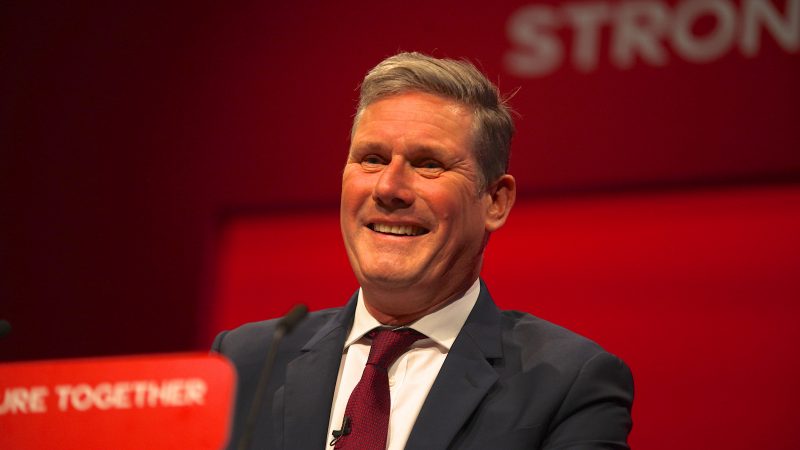
Labour’s lead in the poll over the Conservatives has widened to 13 points amid the bitter Tory infighting seen in the party’s process to elect Boris Johnson’s successor, polling by Savanta ComRes for The Independent has found.
According to the research, published today, the Labour Party would achieve a comfortable majority in the House of Commons if its findings are borne out at the next general election. Compared to a similar poll by Savanta ComRes a month ago, the Conservatives have dropped five points in the polls from 34% to 29%.
Labour gained one point on the last iteration of the survey, moving up from 41% to 42%. The previous research took place in the wake of the ‘partygate’ fines and days before the resignation of deputy chief whip Chris Pincher MP.
Pincher left the government after allegations emerged that he had groped two men at a private members’ club. He resigned in a letter to Johnson, saying that he “drank far too much” and had “embarrassed myself and other people”.
After the allegations emerged and the MP for Tamworth quit his government post, a Downing Street source initially said he would face no further action. The government later U-turned in the face of pressure from colleagues and opposition MPs.
The poll today found that the proportion of 2019 Conservative voters who said they would back the party again in the next election had fallen from 80% to 70% in the space of a month as one in eight of their supporters abandoned the Tories. Of that group, one fifth said they would switch to the Labour Party.
The figures recorded in the Savanta ComRes research would result in an overall Commons majority for the Labour Party of around 70 seats, according to the Electoral Calculus prediction website, with the Tories losing around 180 MPs.
Rishi Sunak and Liz Truss emerged as the final two candidates to replace Johnson following a series of ballots of Tory MPs. Concerns by Conservatives that the debate among candidates in the process is harming the party.
Sunak and Truss both pulled out of a scheduled TV debate earlier this month. Keir Starmer said at the time that he was “astonished” by their decision not to take part and argued that the move “doesn’t show very much confidence”.
2,272 British adults took part in the research on July 23rd and 24th. The results relate to those who said they were likely to vote in the next general election.




More from LabourList
‘What Batley and Spen taught me about standing up to divisive politics’
‘Security in the 21st century means more than just defence’
‘Better the devil you know’: what Gorton and Denton voters say about by-election